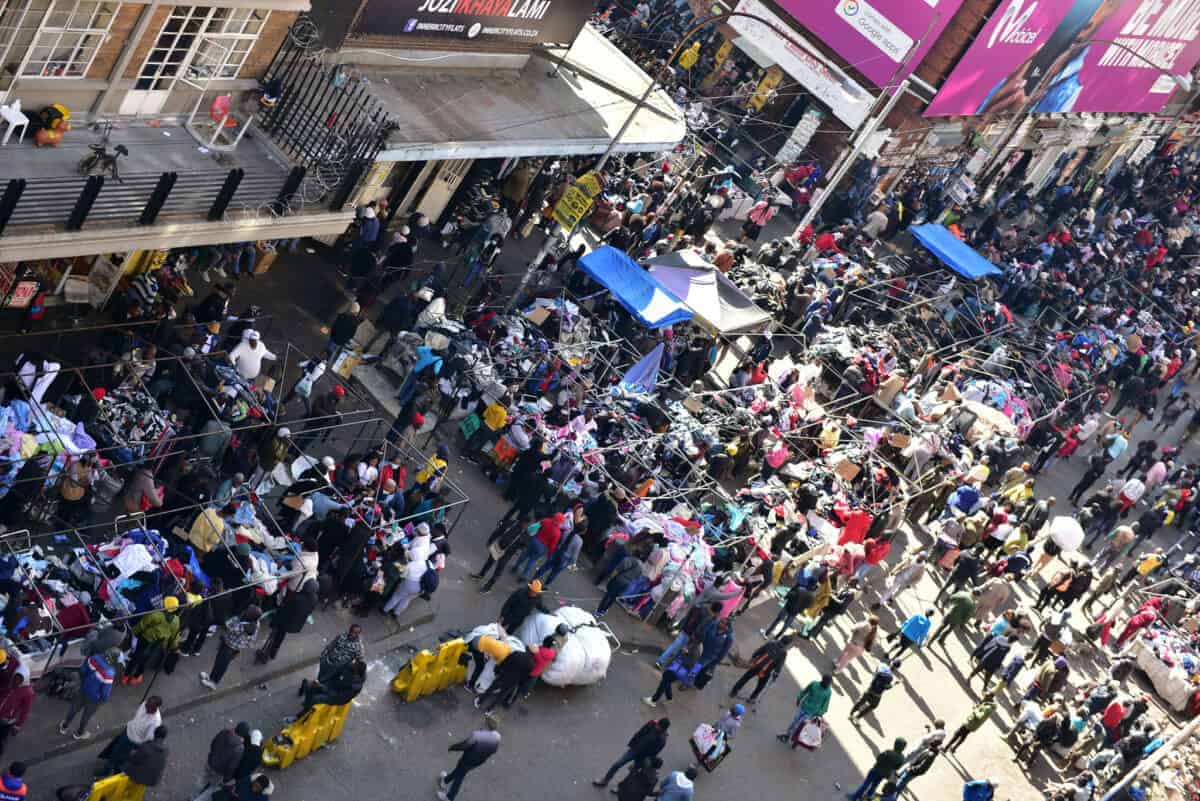If Joburg can balance opportunity with accountability, its streets will not only remain vibrant, but clean, safe and sustainable.

Johannesburg’s streets pulse with ambition and enterprise.
The city’s informal economy is a vital source of income for thousands, reflecting the resilience and ingenuity of its people. Yet, that same vibrancy is increasingly undermined by disorder.
Pavements have become trading corridors, bylaws are inconsistently enforced, and public spaces are deteriorating.
The challenge is not whether informal trading should exist – it must – but whether it can coexist with order, safety and hygiene.
A city cannot thrive when lawlessness takes root. Informal traders often argue that relocating to designated areas will harm their livelihoods.
Their fears are understandable. However, the City of Joburg has made efforts to provide structured trading sites designed to keep both traders and the public safe.
These are not attempts to marginalise traders, but to restore balance.
When trading spills onto crowded pavements and roads, it obstructs pedestrian movement, limits access for emergency services and exacerbates sanitation issues.
Unregulated trading also fuels another rising crisis: illegal dumping.
ALSO READ: ‘South Africans only’: Morero stands firm as City of Joburg and informal traders’ clash in court
Without proper waste management and oversight, refuse piles up around trading areas, blocking drains and creating unhygienic conditions.
During heavy rains, these blocked drains contribute to flooding, damaging both public infrastructure and nearby businesses.
What begins as a matter of economic opportunity ends up threatening public health and urban functionality.
Regulation, therefore, is not a bureaucratic burden, it is essential urban maintenance.
The root of the problem lies in the fragmented management of informal trading.
The department of economic development issues trading permits, environmental health oversees food vendors, the Johannesburg Property Company manages city assets and Johannesburg Metropolitan Police Department allocates pavement trading spots.
This lack of coordination results in inconsistent enforcement, confusion and lost accountability.
Residents and ward councillors, who bear the brunt of unmanaged trading, are seldom consulted.
This fuels frustration and weakens trust in local governance.
ALSO READ: Joburg to fast-track informal trader verification after court ruling
Perhaps it is time for the city to adopt a more decentralised approach – one that includes designated trading spaces not only in central business districts but within individual wards.
This approach would reduce congestion in the inner city, bring order closer to communities and prevent unregulated trading outside people’s homes.
Managed transparently, a ward-based system could also strengthen community ownership and accountability.
Still, even the best plans are meaningless without consistent enforcement.
When bylaws are ignored or applied selectively, the rule of law erodes. Lawlessness – whether tolerated for political expediency or out of fear – undermines public confidence and investment alike.
Johannesburg’s diversity is one of its greatest strengths. Migrants, who contribute meaningfully to the informal economy, must be welcomed, but those within our borders must follow the rule of law.
Fairness demands consistency. City officials must resist intimidation and apply bylaws evenly, without prejudice, exception or corruption.
Regulation is not hostility; it is the foundation of order and fairness. Johannesburg’s success depends on coherent governance, interdepartmental coordination and visible, fair enforcement.
If the city can balance opportunity with accountability, its streets will not only remain vibrant they will be clean, safe and sustainable for all who call this home.
NOW READ: ‘We’re making Joburg great again’: Morero insists city clean up not just to impress G20 leaders






